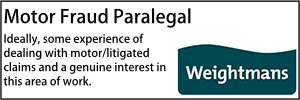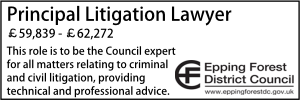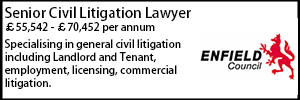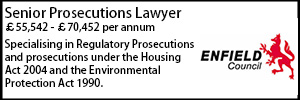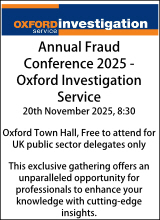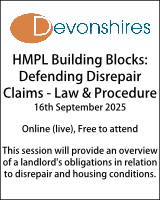It was Darkest Before The Dawn
Philip Kolvin KC explains how the Night Time Industry’s Manifesto Darkest Before the Dawn provided the inspiration for the Licensing Taskforce’s recent report.
- Details
Back in 2023 I led a UK delegation to a gathering of the international great and the good of the night time economy in New York, organised by Jim Peters’ totemic Responsible Hospitality Institute. The talks fizzed, the debates inspired and amidst the craic I returned to a theme which had bothered me for 20 years. Why is licensing never about vision? Why can’t we put it to the service of culture, youth, music, regeneration and urbanism?
So before we split, I sat down with Mike Kill in the foyer of our conference centre and spit-balled a set of ideas of how we might turbo-charge the night. When we got home, we put it to the NTIA Chair, Sacha Lord, who was characteristically encouraging, and so was born Darkest Before the Dawn, NTIA’s Manifesto for the Night Time Economy, which was launched at NTIA’s inspirational summit in Manchester the following year.
The fact that Andy Burnham and other Metro Mayors gave an enthusiastic endorsement to Darkest at the summit was gratifying but was never going to be enough. Many worthwhile ideas wither on the vine. To thrive they need an opportunity and an advocate. The former came in the government’s determination to mine the growth potential of industries. The latter came with Mike, whose capacity for communicating a persuasive case would put most King’s Counsel to shame. Of course, it was not just Mike, but his drive and determination, with Darkest as his calling card, has been seminal.
And so was born the Licensing Policy Sprint, which has culminated in the Joint Industry and HM Government Taskforce Report published on 31st July 2025. It is a pleasure to note that most of the ideas the Report contains find their origin in Darkest, or in work which built on Darkest. More than that: it is crucial to underline its significance, as an answer to doom-mongers who think that nothing good ever comes of a campaign, and also to mark the fact that the NTIA has advanced the conversation in a way which far bigger organisations have not managed these last 20 years. NTIA
have not done it alone, but without them I doubt the Sprint would have happened at all.
So let’s look at how the fruit we are now seeing has its roots in Darkest.
National Governance
Darkest advocated a paradigm shift from the regulation of the night time economy to a national strategy for the night time economy, driven by government departments concerned with culture and growth, and responsible for publication of a national strategy.
These aims have largely been adopted. The Report advocates a National Licensing Policy Framework to drive government objectives around growth, high streets and fair regulation. The Framework will be co-owned by the Department of Business and Trade, DCMS, Ministry of Housing, Communities and Local Government and the Home Office.
With this, as in all statements of new direction, the devil will be in the detail. However, the general thrust of Darkest has been carried forward into the Report.
Placemaking
The Report adopts a central proposal of Darkest, that all local authorities should adopt night time economy strategies, dealing (among other things) with regeneration, cultural development, and customer diversity. This will be key to achieving real change at local level.
Licensing
A key proposal in Darkest was the recognition that cumulative impact and other restraint policies and should be seen as exceptional and time-limited, which now finds its reflection in a recommendation for “sunset clauses” for such policies. While there is already a requirement to review such policies periodically, the thrust of the Report is that such policies are at best temporary medicine and never permanent crutches.
Darkest pointed out that there was an inconsistent and often unfair use of data in licensing processes, used to justify licensing restrictions or even sanctions on the basis of flawed statistics. The Report picks up this theme and recommends a better approach to data analysis and evidential thresholds, which is long overdue.
An important recommendation in Darkest was that the concept of proportionality should be embedded in licensing which, happily, has been picked up in the Report, and has been taken further into a suggestion that the “necessity” test for licence conditions should be reintroduced.
Darkest also pointed out the need for effective support for the agent of change principle, a proposal transposed in the Report with a recommendation that the principle must be considered when making licensing decisions. Darkest also suggest an agent of change officer appointed locally and consulted on relevant planning applications, which has been transplanted into the Report, as has the suggestion for a proper register of vulnerable premises.
A key tenet of Darkest was that there should be common training for all engaged in licensing, be they licensees or regulators. This has been adopted in the Report, with a suggestion that training opportunities be explored by the Institute of Licensing. The Report makes helpful suggestions as to how such training could be funded.
The Report says that duly trained licensing officers should be able to make recommendations to licensing sub-committees. In my view they have always been able to do so, but my advice to that effect 20 years ago to the Institute of Licensing was not followed by licensing authorities. Now, this looks like it may happen. In its advice to government, NTIA went further and suggested that officers should be able to make decisions in straightforward cases, as planning officers can. While that suggestion has not been adopted, we should not give up hope on the topic.
A further NTIA suggestion to the Sprint team was that where licensing and planning permissions are needed, they should be considered by a single committee, which has been adopted. Also picked up was Darkest’s proposal that there should be a one-stop shop for managing all permissions, including planning, licensing, pavement licences, highways consents etc.
Darkest majors on the importance of partnership in the night time economy. In recent months, a number of organisations, including NTIA, have worked together under the aegis of the Institute of Licensing on the creation of a Partnership Charter for the Night Time Economy. The Report contains an important recommendation that the government should endorse the Charter.
Darkest also proposes a system of mediation to precede reviews, an idea which is directly reflected in the Report.
In relation to appeals, Darkest recommended the use of specialist District Judges or the First Tier Tribunal as an alternative appeal tribunal, in order to speed up appeals and save costs. These ideas are directly reflected in the Report.
Finally, the Report suggests an exemption from licensing for small night cafes, an idea lifted directly from Darkest.
Finance
Darkest recommends the abolition of late night levies. The Report does not go that far but does recommend that the evidential underpinning for levies should be reviewed, that they should be a solution of last resort, and that they should be made subject to a sunset clause.
However, the Report does follow the recommendation in Darkest that licensing fees should be reviewed.
Conclusion
It would be idle to pretend that everything in Darkest has been recognised and adopted. The Report is light, for example, on financial ideas in Darkest, including reduction in VAT and rates (which may well happen separately), a fund for the protection of music venues (which is now being implemented by LIVE and the Music Venues Trust in any event), a national business interruption scheme, local authority powers to impose a tourism levy and culture tokens for young people.
Conversely, not everything in the Report has been inspired by Darkest, including a national licence condition amnesty, abolition of newspaper advertising requirements, increased entitlement to temporary events notices, a return to the proximity tests for local objectors and a licensing call-in power for the Mayor of London.
Nevertheless, the parentage of the Report is perfectly evident. It is inspired in its content and values by the ideas in Darkest Before the Dawn. For this, NTIA deserves great credit.
Philip Kolvin KC is a licensing barrister at 11 KBW, a Patron of the Institute of Licensing and the main author of Darkest Before the Dawn.
Trust Solicitor (Public & Healthcare Law)
Trust Solicitor (Employment & Contract Law)
Locums
Poll





